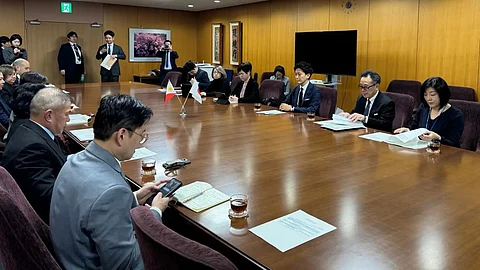
- NEWS
- the EDIT
- COMMENTARY
- BUSINESS
- LIFE
- SHOW
- ACTION
- GLOBAL GOALS
- SNAPS
- DYARYO TIRADA
- MORE

Environmental experts and business leaders gathered in Makati City for an ecological forum that highlighted the environmental advancements of Japanese businesses in reducing greenhouse gas (GHG) emissions.
The event, titled “Partnership to Strengthen Transparency for Co-Innovation Promoting Quality Corporate-Level GHG Measurement and Reporting as a Business Opportunity,” explored how Japanese companies are leading the way in environmental sustainability.
Junya Tanaka, a speaker at the forum, stressed the Japanese government’s mandate for private companies to report their GHG emissions.
In 2021, a significant number of companies, 13,284 to be precise, reported their emissions, amounting to 613.6 million tons of carbon dioxide (CO2).
However, Tanaka pointed out a key challenge.
“The electronic report rating is about 90 percent, but further efforts are needed to increase the rate,” said Tanaka, adding that the voluntary reporting rate remains low at only 1 percent.
Under the Joint Crediting Mechanism, Japan offers its neighboring countries access to various low-carbon technology projects and mitigation actions.
In the Philippines, one notable example is the Binary Geothermal Power Generation project, received from Mitsubishi Heavy Industries. Thailand has benefited from Gas Cogeneration and Refrigeration Systems provided by Kansai Electric Power Company, while Vietnam has received Waste-to-Energy technology from JFE Engineering.
The Climate Change Commission (CCC) of the Philippines presented a pie chart illustrating the critical sectors for climate action -- waste, agriculture, energy, transport and industrial processes. Energy and Transport emerged as the sectors with the highest estimated costs for mitigation, requiring USD 36.5 billion and USD 32.9 billion, respectively.
Also, the CCC stressed its focus on achieving energy efficiency in the energy sector and facilitating the transition of public utility vehicles to eco-friendly alternatives in the transportation sector.
“It is ambitious but achievable,” said Arnold Belver of the CCC, adding that these initiatives are supported by the national budget.
